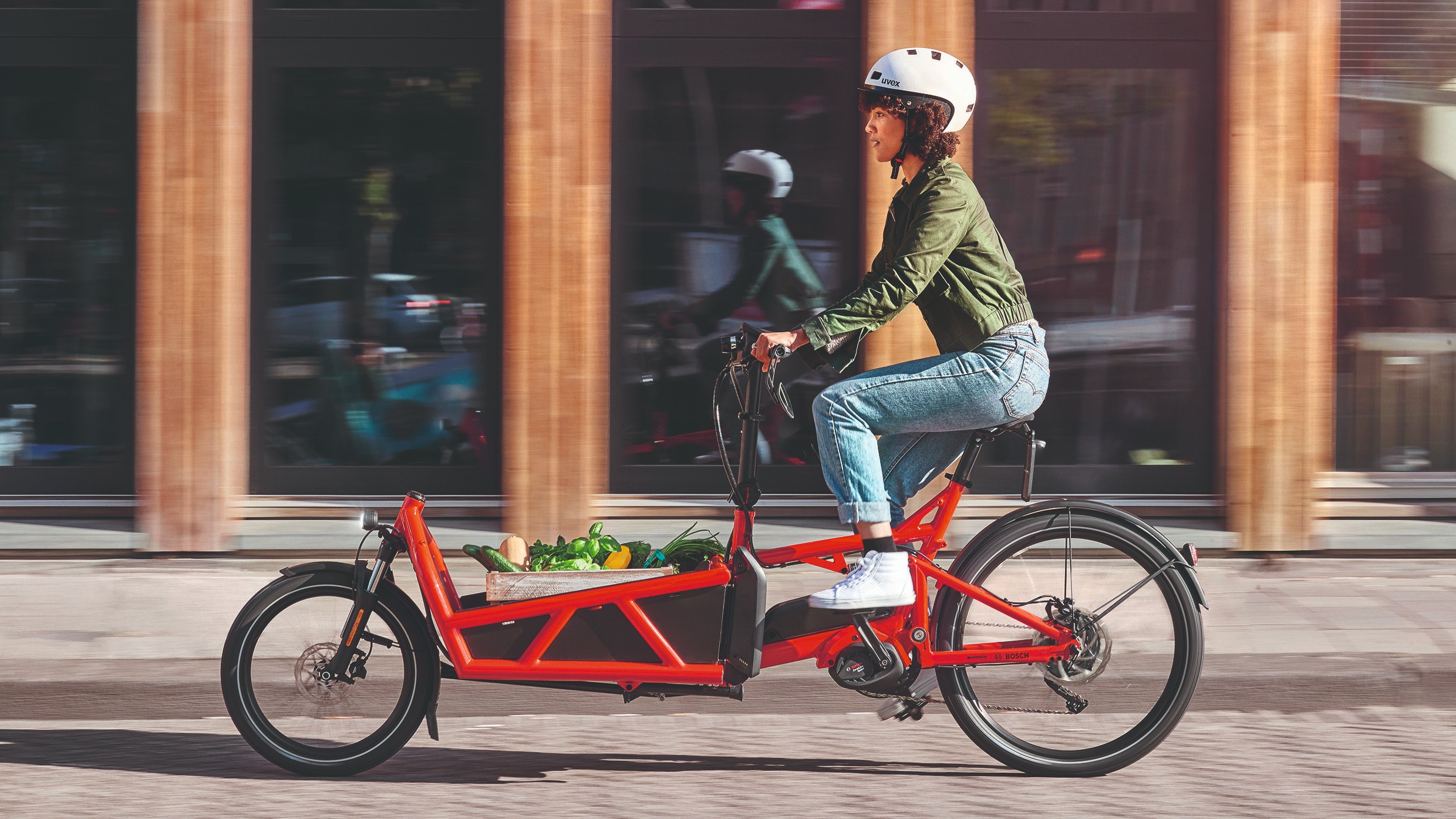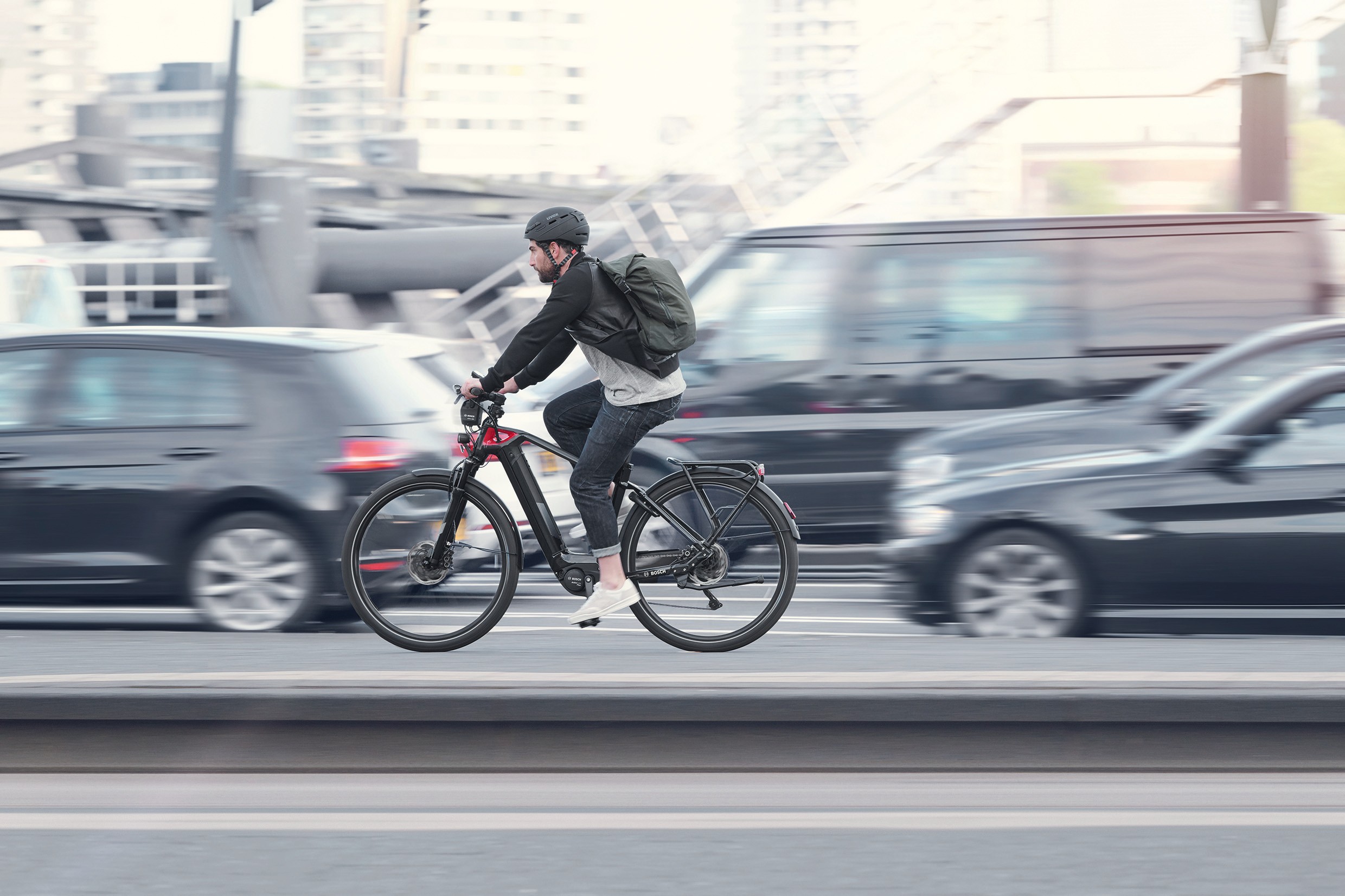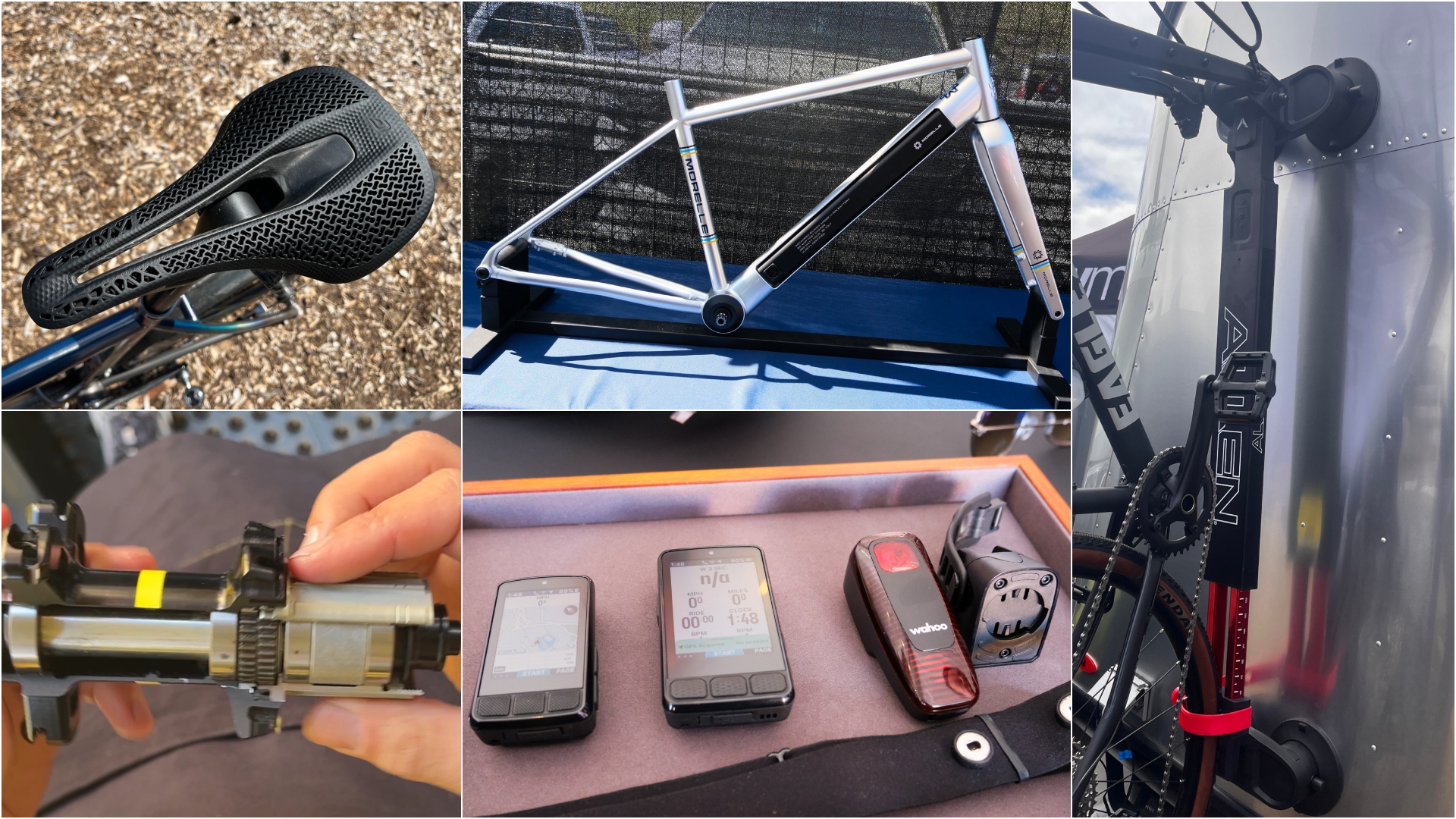Over half of all Brits considering buying an e-bike, study finds
Bosch eBike Systems poll suggests for the first time the majority of UK is ready to embrace e-mobility


More than 25 million adults in the UK are now considering turning to two-wheeled e-mobility for the first time, as commuting and leisure habits evolve in the post-pandemic world.
According to a study by Bosch eBike Systems, 55 per cent of British people are considering purchasing an e-bike following last year’s lockdown, while 32 per cent say they would use their car less in favour of electric pedal power. Critically, 66 per cent would consider buying an e-bike if the government committed to proposed subsidy schemes.
Bosch’s study polled over 2,000 people across the UK - including non-cyclists and those who already own an e-bike - on their perceptions of e-mobility and how these have changed since the start of the pandemic. The research aimed to understand the UK public’s appetite for electric bikes, their willingness to swap the car for a two-wheeled commute, and the transformative role the pandemic has played in changing sustainable travel habits.
The UK e-bike market has grown rapidly over the last few years, with the pandemic accelerating this growth. In 2020 it grew by 68 per cent compared to 2019, with Bosch’s research suggesting that the UK public’s appetite for electric bicycles is only set to increase.
Here are Bosch's findings.
Of those considering buying an e-bike, 23 per cent said they are more likely to buy one now than they were before the pandemic began. This indicates a large-scale re-evaluation of lifestyle and travel habits.

Speaking to individuals who purchased an e-bike during the pandemic, 56 per cent told the Bosch researchers the shift in habits and circumstances as a result of the pandemic played a part in their purchase decision, with 28 per cent saying that avoiding Covid-19 transmission via public transport motivated them to make the change.
Staying fit and healthy and reducing carbon footprint was also a clear motivator behind e-bike use. For example, 54 per cent of e-bike owners bought their e-bike to boost their exercise levels, while 37 per cent did so as a proactive step towards reducing their environmental impact.
Another key finding from the Bosch research is that 32 per cent of the UK public said they would use their car less if they owned an e-bike. If this translated into just one journey fewer by car per day, the average person could reduce their carbon footprint by as much as 0.5 tonnes of CO2 per year.

The research also indicates that once an e-bike is actually bought, car use decreases substantially, with 53 per cent of e-bike owners surveyed revealing that they had cut down on car journeys and travelled by e-bike instead.
Reducing the number of journeys by car is a key motivator for those who have bought an e-bike, according to the study: 25 per cent of owners bought their e-bike to cut down on unnecessary short car journeys. And of those who have made the switch, 68 per cent say they get around more efficiently by e-bike compared to other modes of transport - be that car, bus or train.
With government e-bike subsidies first mooted in November 2020 and an announcement expected imminently, Bosch’s research also records that 66 per cent of the UK population - up to 34 million adults - could be persuaded to buy an e-bike with the help of subsidies. The UK government is thought to be preparing measures that could discount e-bikes by as much as a third in a move similar to that already proposed in France. With 55 per cent of adults considering an e-bike purchase regardless of subsidies, these measures could support uptake among those put off by cost.
Even without subsidy schemes, 81 per cent of e-bike owners surveyed said that their electric bike purchase was a good investment.
Commenting on the new research, vice-president of marketing, communications and brand management at Bosch eBike Systems, Tamara Winograd said: “This research provides some key insights into e-bike growing presence in the UK. We’re proud to unveil these key findings as we’re passionate about the role e-bikes can play in the growth of active travel and the dramatic reduction of carbon emissions in the UK and across the globe. It’s encouraging to see the rapid development of e-biking as a sustainable and enjoyable travel option and these findings confirm what we’ve been seeing over the past year, as more people discover the benefits of e-mobility.”
If you haven't done so yet, check out Cycling Weekly's guide to the best e-bikes.

Thank you for reading 20 articles this month* Join now for unlimited access
Enjoy your first month for just £1 / $1 / €1
*Read 5 free articles per month without a subscription

Join now for unlimited access
Try first month for just £1 / $1 / €1
Get The Leadout Newsletter
The latest race content, interviews, features, reviews and expert buying guides, direct to your inbox!
Simon Smythe is a hugely experienced cycling tech writer, who has been writing for Cycling Weekly since 2003. Until recently he was our senior tech writer. In his cycling career Simon has mostly focused on time trialling with a national medal, a few open wins and his club's 30-mile record in his palmares. These days he spends most of his time testing road bikes, or on a tandem doing the school run with his younger son.
-
 A bike rack with an app? Wahoo’s latest, and a hub silencer – Sea Otter Classic tech highlights, Part 2
A bike rack with an app? Wahoo’s latest, and a hub silencer – Sea Otter Classic tech highlights, Part 2A few standout pieces of gear from North America's biggest bike gathering
By Anne-Marije Rook
-
 Cycling's riders need more protection from mindless 'fans' at races to avoid another Mathieu van der Poel Paris-Roubaix bottle incident
Cycling's riders need more protection from mindless 'fans' at races to avoid another Mathieu van der Poel Paris-Roubaix bottle incidentCycling's authorities must do everything within their power to prevent spectators from assaulting riders
By Tom Thewlis